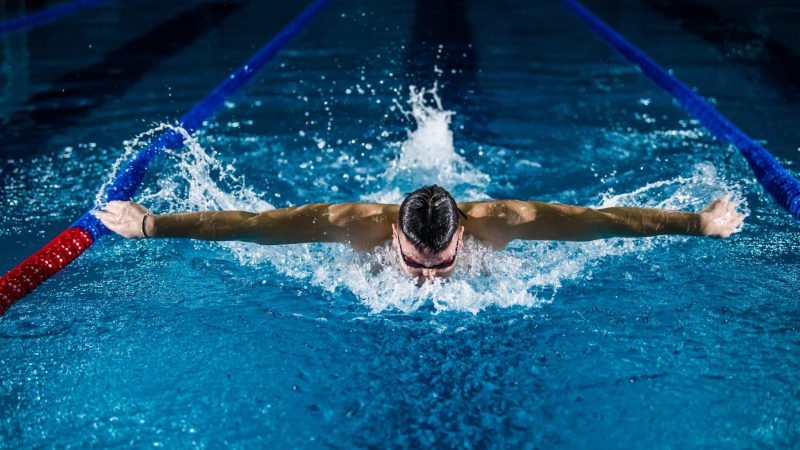
- Is shoulder pain interfering with your swimming?
- Every swimmer has shoulder pain at some time, that's normal....right?
- Is it really normal to have post-workout soreness? And how can you tell?
- Do you have pain in one shoulder, but not the other? Why does that happen if you are taking the same number of strokes with each arm?
How often have you asked yourself these questions?
Has swimmer’s shoulder caused you to change your swim training? If your shoulder is too sore/painful to swim, then you might want to take a closer look at what is really going on.
The first thing that you need to realize is that your “swimmer’s shoulder” is NOT only about your shoulder.
When you swim, your entire body has to work in a well-coordinated pattern to be the most efficient and the fastest you can be in the water.
But when you lose your stroke form and efficiency, your body will have to make up for that somehow.
Most often, your body will take the path of least resistance. It will move where it can most easily move…which is at your shoulder.
The shoulder is already taking a large load when swimming. It is vulnerable to fatigue because of the number of strokes taken in the water. Adding more stresses by having the shoulder compensate for other parts of the body will overload the muscles, tendons, and cartilage of the shoulder.
“Swimmers shoulder” by any other name
The common diagnoses that are associated with swimmer’s shoulder are as follows:
- Tendinitis
- Bursitis
- Overuse
- Labral tears
- Acromio-clavicular joint pain
- Neck pain referral
Join our email list to receive important updates.
QUICKNAV
Latest Posts

Are You Swimming Upstream or Going with the Flow?
“My doctor said I’m “swimming upstream.” He based his statement on the fact that I have a long-standing problem.”
What a troubling statement.
This led my patient to believe that his symptoms would be tough to get rid of, and might not be able to be changed.

The Power of Small Changes to Introduce Big Effects!
Let’s face the facts…most people do not like change of any kind. Change can be daunting, especially when making drastic changes for our health.
Have you been told by your doctor that you have to exercise more, lose weight, and cut out sugar? What about getting more sleep? Reading more books, reducing your screen time? These are great advice for almost all of us…

How to Lose Your Inhibitions
What if your inhibitions hold you back from making continual improvements?
You might be surprised to find out that your movements and abilities are not always what you think they are…especially if you have ever experienced an injury.

Are You Swimming Upstream or Going with the Flow?
“My doctor said I’m “swimming upstream.” He based his statement on the fact that I have a long-standing problem.”
What a troubling statement.
This led my patient to believe that his symptoms would be tough to get rid of, and might not be able to be changed.

The Power of Small Changes to Introduce Big Effects!
Let’s face the facts…most people do not like change of any kind. Change can be daunting, especially when making drastic changes for our health.
Have you been told by your doctor that you have to exercise more, lose weight, and cut out sugar? What about getting more sleep? Reading more books, reducing your screen time? These are great advice for almost all of us…

How to Lose Your Inhibitions
What if your inhibitions hold you back from making continual improvements?
You might be surprised to find out that your movements and abilities are not always what you think they are…especially if you have ever experienced an injury.
Always moving forward
A different result requires doing something different.
~ Gary W. Keller
